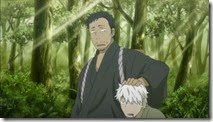 |
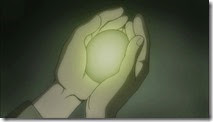 |
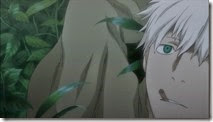 |
The only good thing about Mushishi going away is the wondrous feeling of seeing it come back.
What to call this episode of Mushishi Zoku Shou? Is it Episode 1 of the second season, or is it Episode 11- or Episode 13? The official website seems to have settled on “11” so I’ll go with that, but whatever else you call it you have to call it brilliant. And profound, and powerful. The problem with Mushishi is that watching it makes the experience of watching anything else immediately afterwards feel pretty hollow.
Nagahama Hiroshi has obviously done a marvelous job with this adaptation in every respect, but one underrated element of that is the order he’s chosen to adapt the manga’s chapters. There have been a lot of fits and starts with this anime over the years, but he always manages to find the right story to stop on, and to begin again – and if anything, there seems to be a more natural flow to the anime’s order than even the source material’s. And he could hardly have picked a better story with which to start the anime’s final season than “Cushion of Grass”.
There’s a peculiar timeless quality to Mushishi, both inside the narrative and in the experience of watching it. Throughout the myriad interruptions caused by Artland’s travails whenever the show does begin again, it immediately transports me back inside it, and the feeling is as if I’ve never left. If that works over an absence of nearly a decade it’s certainly going to do so for one of a month of three (depending on if you consider the two eps that aired last month) and the transition back inside the world is once again seamless. It may sound cliche, but it’s almost like entering a dream state – or perhaps meditation, because without a doubt Mushishi is for me the most meditative anime I’ve ever watched.
We’ve seen chapters focused on the young Ginko before, but “Cushion of Grass” seems to focus on a period which we haven’t seen – he’s perhaps 13 here, and well into his period of ronin existence, depending on Mushishi to raise him until they force him away due to his mushi-attracting nature. I’m not a huge fan of Sawashiro Miyuki’s casting as the young Ginko – I much prefer the series’ usual practice of using child actors to play children, and her ultra-recognizable voice is a bit of a distraction – but she’s done so from the beginning so it’s just part of the deal at this point.
Into the picture steps Suguro (Nakao Ryusei, who began his seiyuu career at 14 and has been at it for almost 50 years). He too is a Mushishi who takes in Ginko – this time collapsed from starvation – but he’s of a different order than the rest of them. He understands Ginko’s plight, offers his advice on how he can minimize the impact of his nature (he’s the one who teaches Ginko to use Mushi-repelling cigarettes, though Nagahama won’t show us the child actually smoking one). Suguro is kind and plain-spoken, and lives in a forest on a mountain where the Lord is near death – and there have been no signs that the new one has been born yet.
Mountain Lords are deeply woven into Japanese folklore, an elemental part of Shinto, and have been the focus of a number of Mushishi storylines. We’ve seen tragedy attached to these incidents before, and it seems we’re headed in that direction again when Ginko – after fleetingly toying with the idea of stealing the still-unborn successor’s power to “cure” himself – accidentally causes its death by dropping the egg it was to hatch from. Desperate to fix things he races through the forest shouting for Suguro, but winds up instead entering the world of Mushi, seeing the Koumyaku and the dancing spirits of the prior generations of Mountain Lords. The Tokoyami trapped inside Ginko – an elemental creature of darkness – rebels at this, but Ginko has a flash of realization that it wants only to survive, the most natural instinct of any living creature.
There’s something profound in the events that follow, sad yet also hopeful in the way Mushishi at its best often seems to be. The spirits of the mountain accept the light from their unborn successor into their circle, and point Ginko back to the human world – this despite the fact that he feels he doesn’t deserve to live. When Ginko explains what’s happened to Suguro, it’s clear that this is a grave turn of events – with no Lord the mountain will wither away and be lifeless for a time, but Suguro tells Ginko that by accepting the unborn spirit, the “roots” of the Mountain Lords confirm that a new flower will bloom in time. Suguro tells Ginko that he can’t forgive him for what he’s done, and that he won’t see the boy again – and sends him off alone, yet again. Yet the final words Suguro says to Ginko are a gift, an act of genuine compassion and wisdom: “Remember this – there is no place in the world where we do not belong. The same goes for you. The natural order allowed you to come back. That means you belong in this world, no matter where you might be.”
“You belong in this world, no matter where you might be.” There’s innate truth in these words, but for someone like Ginko (and it seems there’s no one else like Ginko) hearing them might almost be said to be the most important moment of his life. What is the alternative for someone who has no place where he belongs? To belong everywhere. For the boy who must travel forever, the only suitable home is the entire world. I think it’s Suguro who gave Ginko the framework to define his own existence, to accept himself, and to give meaning to his life. And one could hardly imagine a greater and more compassionate gift than that.
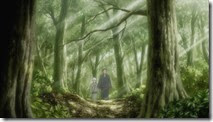 |
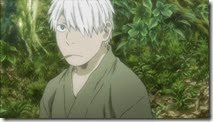 |
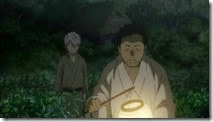 |
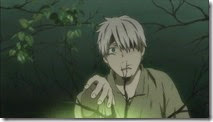 |
 |
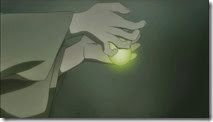 |
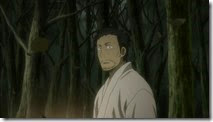 |
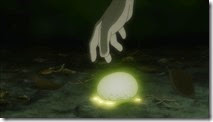 |
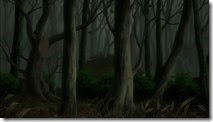 |
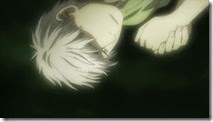 |
 |
 |
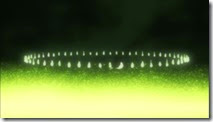 |
 |
 |
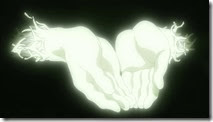 |
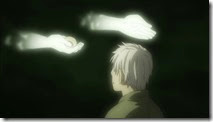 |
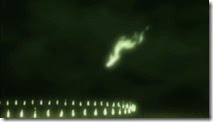 |
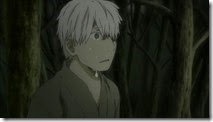 |
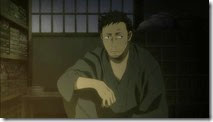 |
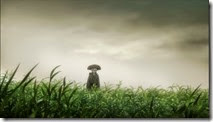 |
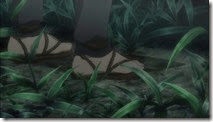 |
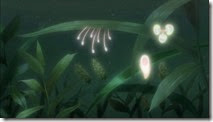 |
 |
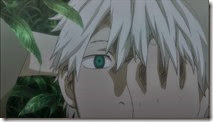 |
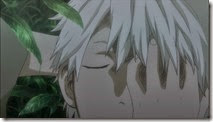 |
 |
End Card:
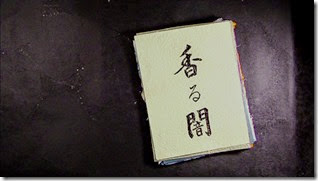 |


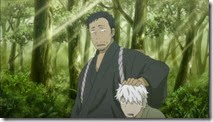
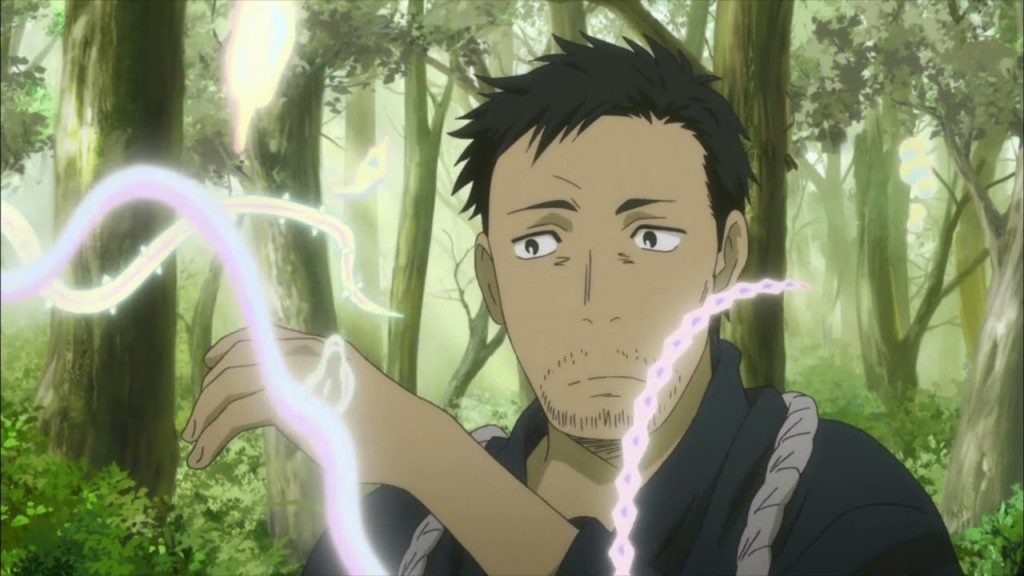
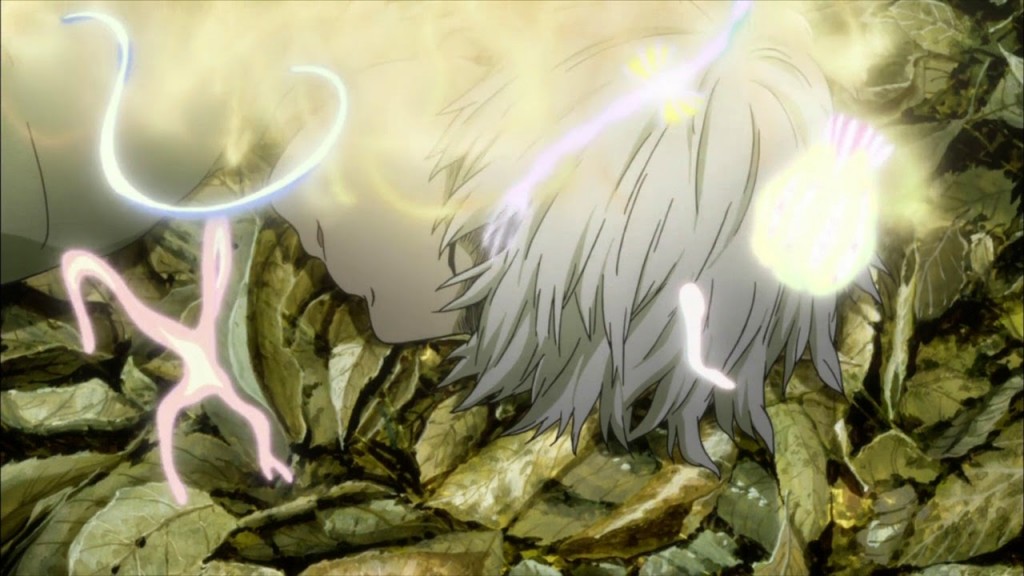

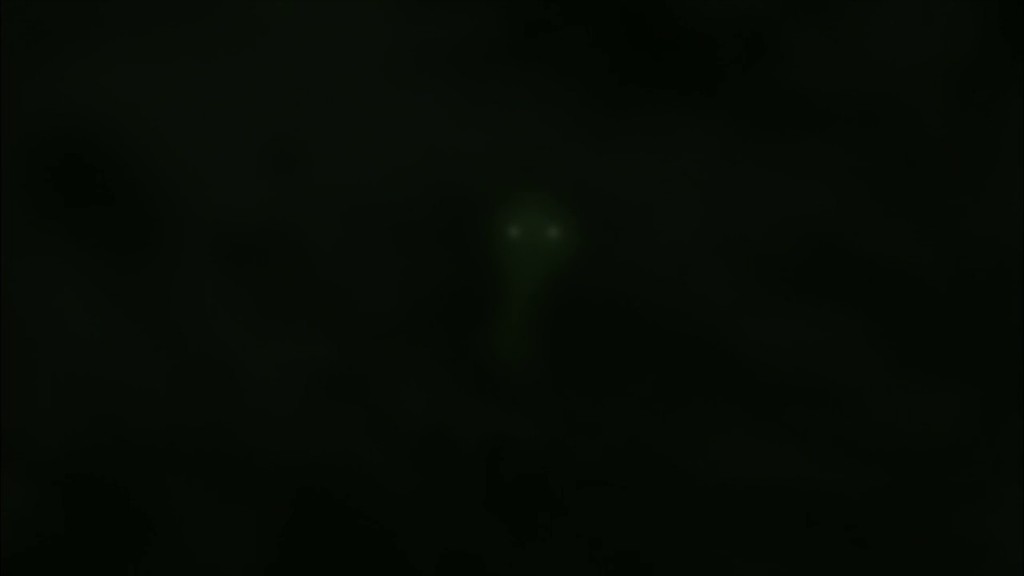
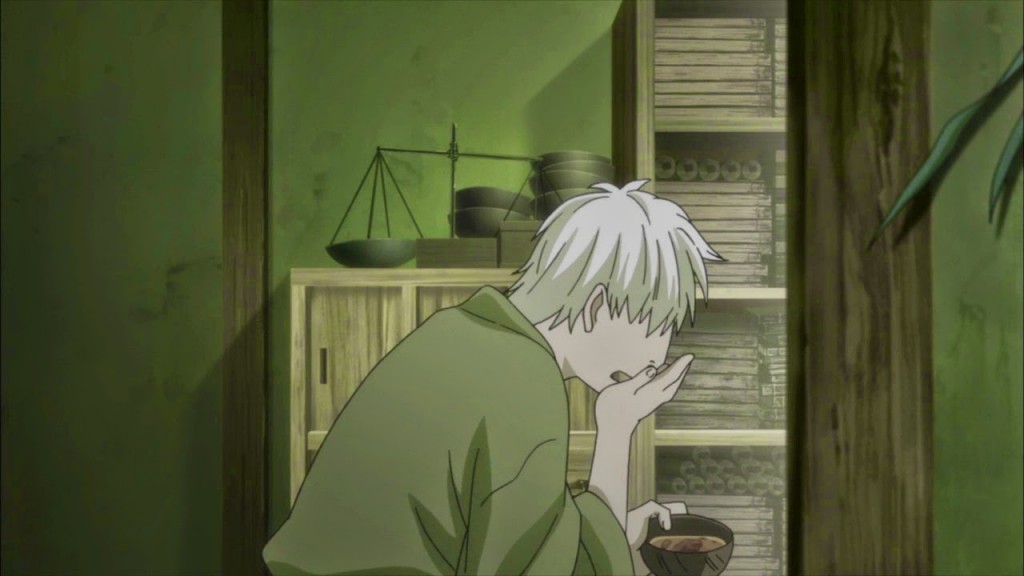
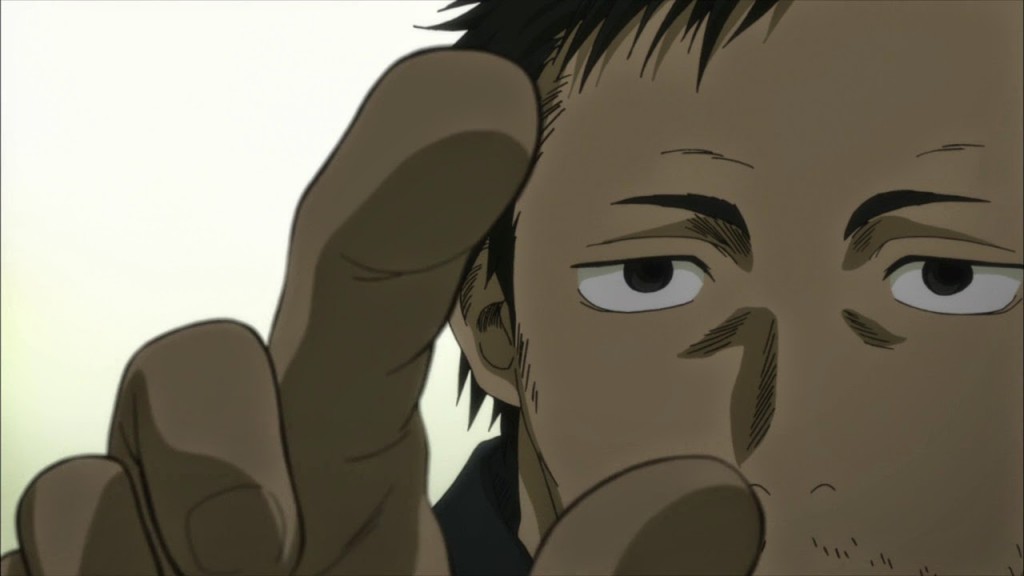
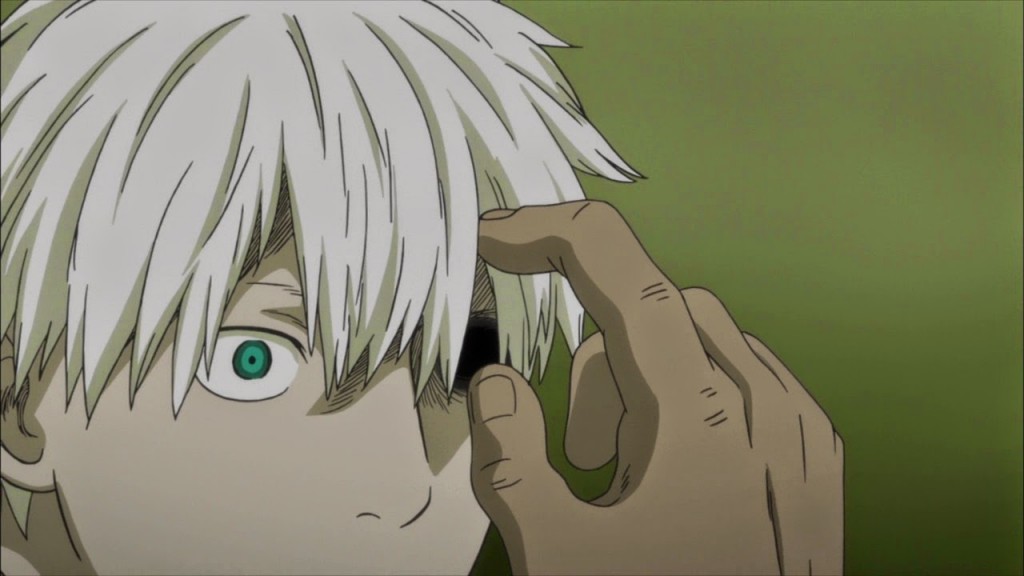
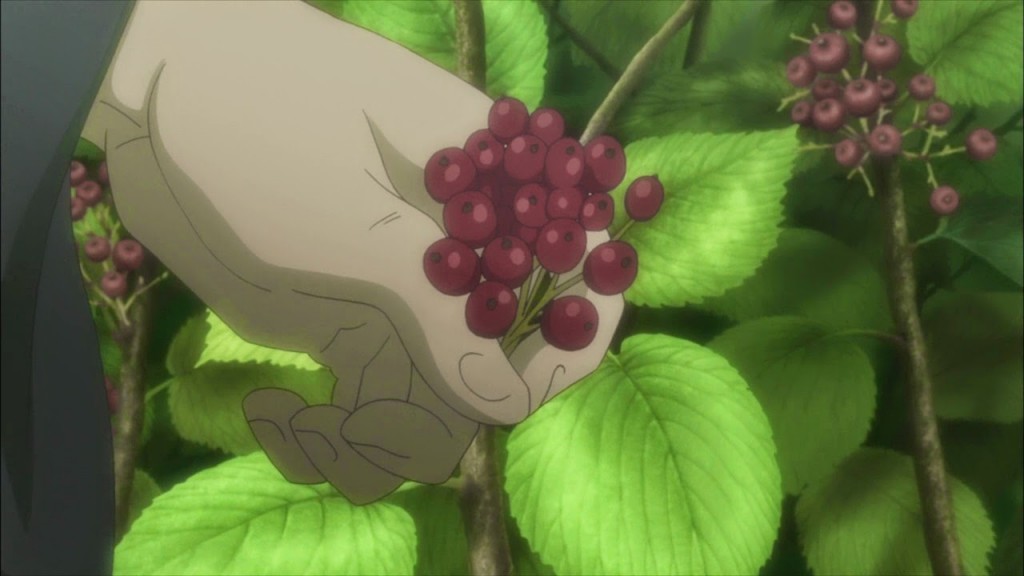


sonicsenryaku
October 19, 2014 at 5:28 amMy elite anime is finally here and it does not disappoint. An anime that truly takes advantage of the medium and delivers its message with soothing profundity. I dont care that Mushishi is a work of animation, it is a powerful series in general that can stand toe-to-toe with some of the best stuff across any medium of entertainment but that's no surprise considering it's got such a kick-ass director (i really wish he did would direct more anime though with the industry being the way it is, i can understand why he probably wouldnt want to; that's like asking Chiaki J. Konaka to write a shallow harem series), good-looking art and superb source material.
zandrame
October 19, 2014 at 7:21 amI felt this episode was better than the entire first half of season 2 (minus the OVA). The typical episodes of Ginko traveling and coming across a village with a unique mushi problem to resolve sometimes seem formulaic, like "monster of the week" syndrome. I still enjoy them, and the offhand critique of human nature, but I prefer the stories where Ginko is directly involved and consequences feel more lasting. Getting to see Ginko's past is another treat, but I'd forgotten Sawashiro Miyuki did his young voice, which definitely affected the impact – not just because she's so recognizable, but that her voice seemed too young for his character's pubescent appearance.
All in all, I was pleased! 🙂
Dee
October 19, 2014 at 6:52 pmI have this "problem" with Mushishi where I get so involved in the story that I forget to read the subtitles. I can't think of another series that does that for me. Point being, I very much understand what you mean about the show transporting you and the sense of being in a dream state while watching it. Another mesmerizing episode in a top-tier series. So glad to have it back.
gilraen_tinuviel
October 19, 2014 at 8:45 pmWell, I won't go smart today. Everything was said anyway.
But your puny teenager mistakes have nothing on Ginko's teenager mistake, when he destroyed natural order in the mountains, at last for some time.
grm_rules
October 19, 2014 at 11:18 pmAfter watching this episode I couldnt help but look back to episode 7, cloudless rain (日 照る 雨) .
Suddenly Gin's advice to that girl seems alot deeper, as her situation was in sorts a reflection of his own.
What he said to her looked like something he could have told himself (perhaps did, in the past).
That episode and this one fit very nicely in the construction and growth of Gin's character, I think.
Lang Xia
October 21, 2014 at 9:06 pmgrass cushion is very subtle.. open with ginko lying on grass facedown.. last scene he was sleeping on grass in a very relaxing state.. also he had that mushishi suitcase on his back.. i wonder if suguro gave him those things..so happy mushishi is finally.back even though it's.this masterpiece's last season
ninad
January 30, 2015 at 10:33 amDoes anybody has any idea what's the name of the soundtrack played in the end of this episode ?